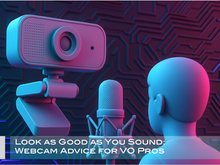Updates are NOT always Upgrades!
- Frank Verderosa
- Aug 21, 2023
- 4 min read
Updated: Sep 11, 2023
The leading edge verses the bleeding edge.

We’re conditioned to think that the latest updates for our computers and devices are going to deliver the promises made at developer conferences and events where they are rolled out and hyped. The well-staged display of new features and cool tools is always exciting- but slow your roll! Updates aren’t always upgrades, and you can quickly jump from the leading edge to the bleeding edge of technology.
Blindly updating your operating system can cripple your rig and cost you time- and work! Recording studios in the digital age have always had to weigh the benefits of an operating system upgrade vs the potential for problems. When you’re dealing with a multi-room facility, a simple operating system update can cost serious downtime. Why? Because not all software creators are ready on day one of that new operating system release. For example. Avid’s Pro Tools keeps an up-to-date compatibility chart to let you know which Mac OS has been approved to work with which version of Pro Tools.
"Slow your roll! Updates aren’t always upgrades, and you can quickly jump from the leading edge to the bleeding edge of technology".
Case in point: an actor recently reached out to me because their recording setup was no longer behaving as it should. They’re a PC user, which often brings its own set of complications. We texted and chatted back and forth for hours trying to resolve it, working from the interface down to the computer to troubleshoot. In the end, it was some audio settings that needed to be tweaked. Apparently an operating system update messed things up, and a driver update was needed. We got it back to normal....and then the very next day, the same actor posted on social media that they were having the issue again. I commented “wait- we just spent hours figuring that out. What happened?” They said “the operating system updated again overnight”.
So what do you do? Here are things to consider:
1 - Turn off automatic updates.
My Mac at home would alert me daily to updates. It was relentless. But my personal problem is that the very next operating system up from where I am will kill my Pro Tools software, forcing me to update to a new monthly plan for something that I currently own. It’s something I’ve dealt with before for other programs, like Quickbooks Pro. I owned and used it for years as a business owner, and then one day after a Mac OS upgrade, it was no longer compatible. Between Pro Tools and other plug-in’s, I estimate my cost of a Mac OS update to be in the thousands of dollars. The rewards of current updates just don't justify the risk at the moment.
2- Check in with your critical software companies before updating.
Whether you’re using Audacity, Pro Tools, Logic Pro, Adobe Audition or Reaper- inquire about compatibility before hitting that update button! It doesn’t typically take long for programmers to tweak their software to work- but you don’t want to find out the hard way that you suddenly don’t have a way to record. With programs like Logic Pro or GarageBand being made by Apple, there’s a solid chance that it will work after a system upgrade. But never assume!
3- You’re a beta tester now!
While developer conferences tout new capabilities of pending operating systems, have you noticed the trend where it’s released- and then weekly updates are rolled out to fix all the bugs? That’s because you’re now part of the development process. The rush to release means cutting corners, making you a beta tester in the wild! Proceed with caution!
4- Have a backup plan!
I've previously written about the importance of working to an external hard drive, as well as using backup software when possible. If you’re on a Mac, you can have a dedicated Time Machine backup drive. Not only is it a handy way to recover accidentally deleted files, but it’s also a fully restorable system clone. If your Mac has a critical failure, you can restore your entire operating system to where you left off at the last backup. If you update your operating system and realize that important software no longer functions, you can “rewind” to the previous operating system. This does take some time, though- so don’t wait til right before a session to find out!
There are a number of ways to clone your internal drive- whether you’re on a Mac or a PC, including a bootable clone to actually run your computer off of in an emergency.
If you’re a busy working professional, you should probably already be separating your audio work from your internal drive by way of an external hard drive. The obvious benefit of this is that a system drive crash does NOT mean a loss of work!
The Bottom Line
As tempting as a few cool new features may be for your operating system update, don’t be too quick to allow it. You can be opening up a can of worms. It’s also a really good idea to check on your system periodically if you’re only doing voice work occasionally. For casting and for sessions, I see a lot of people waiting until the last minute and then realizing that their Source Connect isn’t working anymore, or Zoom needs to update. Keep in touch with your system and software, and you’ll save yourself some serious headaches!
As always, if you need help or have questions- click the VO Help tab!


































Comments